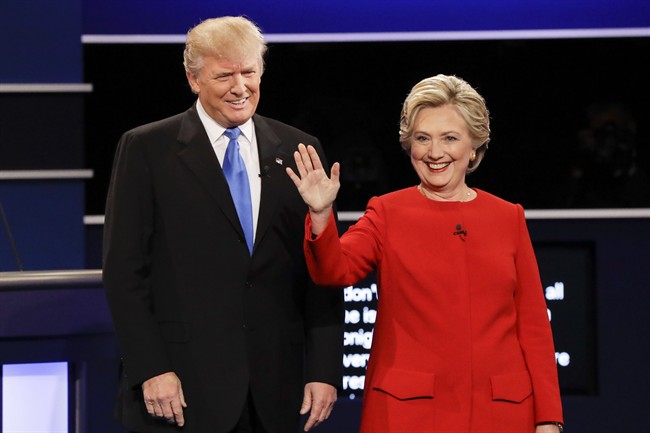Hillary Clinton so far has 17. Republican presidential nominee Donald Trump has zero – that’s one less newspaper endorsement than “not Trump,” and three fewer than Libertarian candidate Gary Johnson, according to UC Santa Barbara which tracks endorsements.

Several endorsements have gained attention, some because a traditionally conservative paper’s editorial board bucked tradition and endorsed Clinton, the Democrat. USA Today’s endorsement (for “not Trump”) was noteworthy because it was the first endorsement of any kind in the paper’s 34-year history. And in its new issue, The Atlantic magazine endorsed Clinton in what became its third published endorsement in the nearly 160 years it has been running.
“The fact you have a number of prominent newspapers and magazines breaking tradition speaks to editorial boards’ concerns about the outcome of the election … they see this as part of their responsibility,” said Donald Abelson, a political science professor at Western University specializing in American politics.
READ MORE: Donald Trump will win US election, ‘Harry Potter’ actor Daniel Radcliffe predicts
“The endorsements are sending a signal, particularly to undecided voters, about the problems this election might have not just in the U.S., but for the world.”
Although USA Today boasts a daily print and digital circulation of almost 2.5 million, newspaper circulation has, in general, declined. Add to this the relatively low level of trust the American public holds for journalists (a recent study from the Pew Research Centre suggested two-in-ten trust information from local news organizations “a lot,” and only 18 per cent felt the same toward national organizations) and it’s fair to wonder whether the opinions of editorial boards truly matter – and whether the opinions can sway voters.
WATCH: Trump calls controversial comments about women ‘were for the purpose of entertainment’

A study published recently in the journal Economic Inquiry looked at the effects of newspaper endorsements leading up to the 2008 and 2012 U.S. presidential elections. The authors found that “surprising” endorsements – those when a paper known to typically endorse the candidate of one party endorses the candidate from another – had the most influence during those elections.
Similarly, a 2011 study examining the effects of newspaper endorsements found that while the opinions of editorial boards do hold sway, the level of influence depends on the “credibility” of the endorsement. As the authors put it, “endorsements for the Democratic candidate from left-leaning newspapers are less influential than are endorsements from neutral or right-leaning newspapers.”
WATCH: Clinton: ‘We’re not all gonna end up being Miss Universe’

Nelson Wiseman, a political science professor at the University of Toronto, noted that only a small percentage of newspaper readers actually read the editorial pages.
“About 10 years ago, the percentage was three per cent,” he said Thursday. “That’s probably smaller now, because of the shrinkage in newspapers since then.”
Moreover, the “attentive public,” as Wiseman referred to members of society who follow news and editorials, are the least likely to be swayed during an election campaign.
READ MORE: Donald Trump attempts to distance himself from Vladimir Putin
“The people most likely to be swayed are those who don’t follow news. And they’re the least likely to look and a newspaper endorsement,” he said.
Regardless of the influence leveled, Abelson said, endorsements from newspapers – as well as news stories, columns and editorials – can serve a greater purpose.
“To what extent the endorsements will influence the electorate, no one knows,” he said. “But media has an important role to play, to encourage discussion – not just about what happens on November 8, but about the direction the U.S. is going.”




Comments